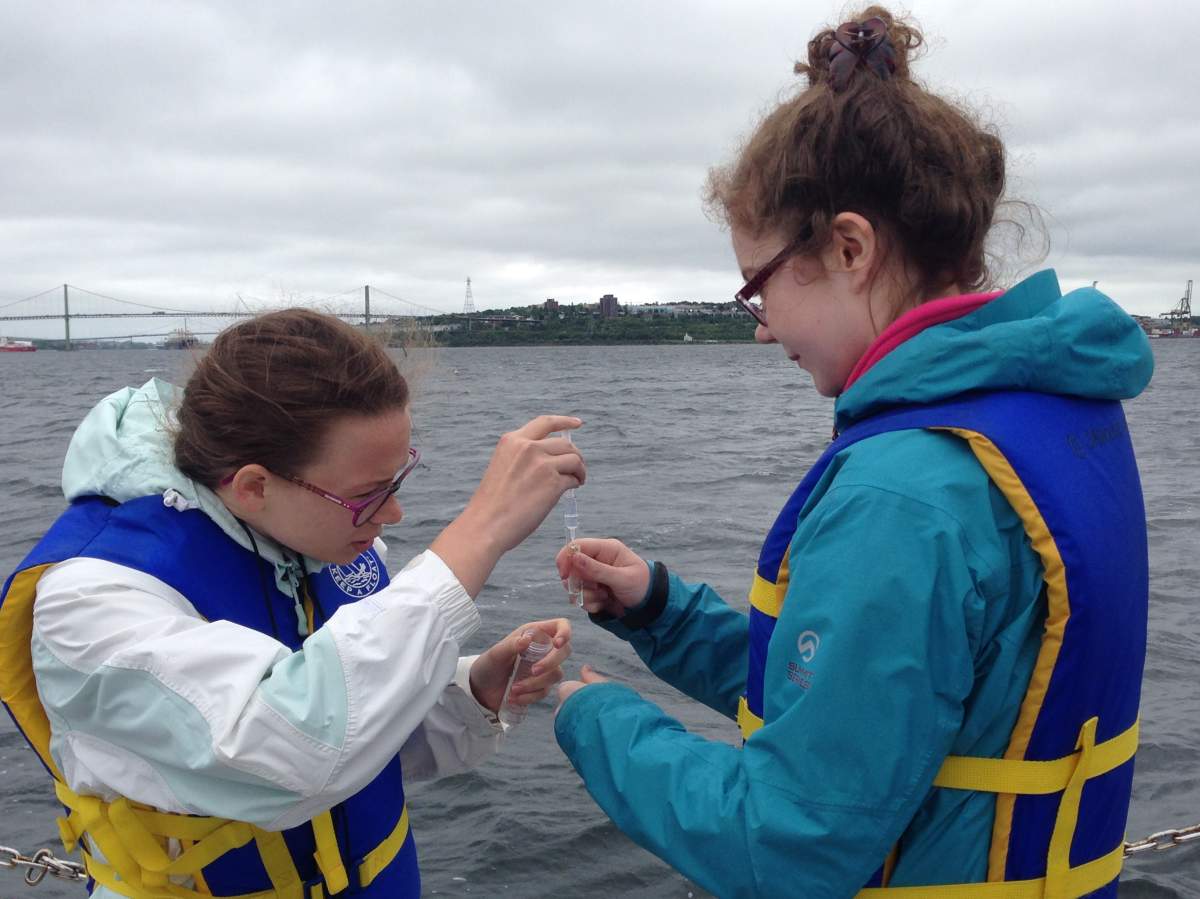WATCH: A simultaneous sampling campaign took place today. It saw teams of scientists from around the world take samples from the ocean. The goal? To identify tiny microbes found within the water. Global’s Natasha Pace tagged along with the only team to do water samples in our region.

HALIFAX – For the second year in a row, researchers with Dalhousie University took to the waters of the Bedford Basin to try and explore what lies beneath.
“We study marine microbial genomics so we basically look at all the tiny little critters that live in the ocean and how they contribute to basically sustaining life,” said Dr. Jennifer Tolman, the scientist in charge of the research cruise.
Tolman said although microorganisms are invisible to the naked eye, they are extremely important. The organisms produce the oxygen we breathe, and form the basis of the entire marine food chain. “Without these little microbes doing their job, wed have a pretty tough job surviving,” said Tolman.
Not everyone participating in the ocean sampling cruise was a university researcher. Some were using this experience to see what type of scientific filed they want to get in to.
“It’s really good to get all the experience you can, especially in things your interested in. So having opportunities like this is really important and it’s really cool and neat we get to do it,” said Meaghan Bartlett, who just finished her first year of university.

Get daily National news
Through the use of a holographic microscope, researchers looked at organisms in real time as they were collected. The samples will go towards building a database of the ocean’s microbes, one that scientists all over the world can use to learn about serious threats to our planet, like climate change.
“The DNA gets extracted and then we can read what’s essentially a little barcode that’s present in every organism, whether it’s a bacteria, all the way up to us,” Tolman said.
Samples from all seven continents will later be sent to Germany, where the data collected will also be used in scientific research for years to come.
“It’s very unique,” said Chaya Seale, a grade 11 high school student. “I’m probably one of the only people that get to do this, and I think we should do more of it.”








Comments